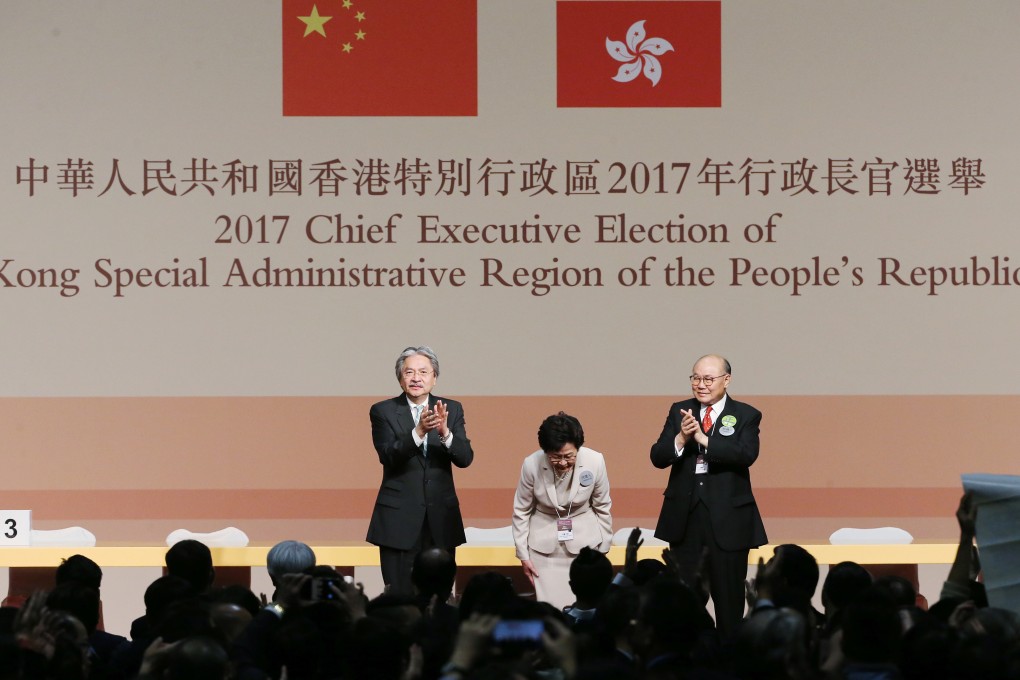Advertisement
Hong Kong chief executive election 2022: why this year’s leadership race is unusual
- Observer says Beijing is biding its time on giving nod to favourites, as it does not want to fuel tensions in pro-establishment camp, while another notes lengthy campaigns not needed with narrowed political spectrum
- Current leader Carrie Lam has remained coy on a second bid, while no officials have resigned as in previous races to signal a possible run for top job
Reading Time:4 minutes
Why you can trust SCMP
28

Hong Kong is witnessing an exceptional three-month countdown to the election of its next leader, with no clues yet on who will throw their hat into the ring.
It is unprecedented that no potential contender has launched a campaign, no incumbent official has resigned, and no signs have emerged of a Beijing favourite.
The much-anticipated official guidelines for the chief executive election will also arrive late, with a source revealing that this will only be released in the coming week at the earliest, half a month later than in the last race.
Advertisement
Incumbent city leader Carrie Lam Cheng Yuet-ngor has remained tight-tipped on her ambition for a second five-year term that would kick off in July. The chief executive dropped the biggest hint so far on a possible bid when she held a rare press briefing last week centred on a year-end review of her work – the first of its kind in the past decade.
Lam touted her achievements, and also highlighted the importance of “continuity in government policies”.
State leaders offered no symbolic handshake – seen by observers as a signal of blessings from the central government – to Lam during her recent duty visit to Beijing, and the pro-establishment bloc in Hong Kong has remained silent on its preferred pick, although a few names have been floating in political circles.
Advertisement
Select Voice
Select Speed
1.00x